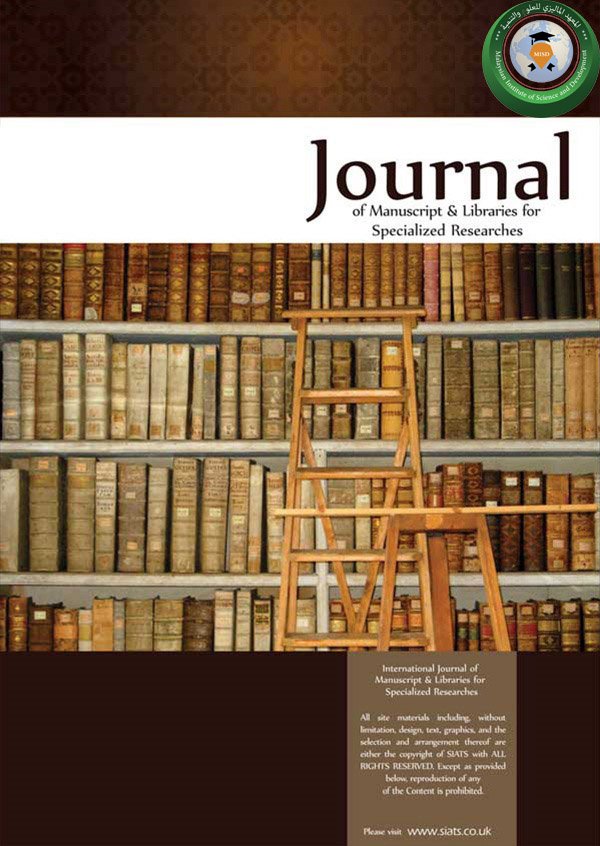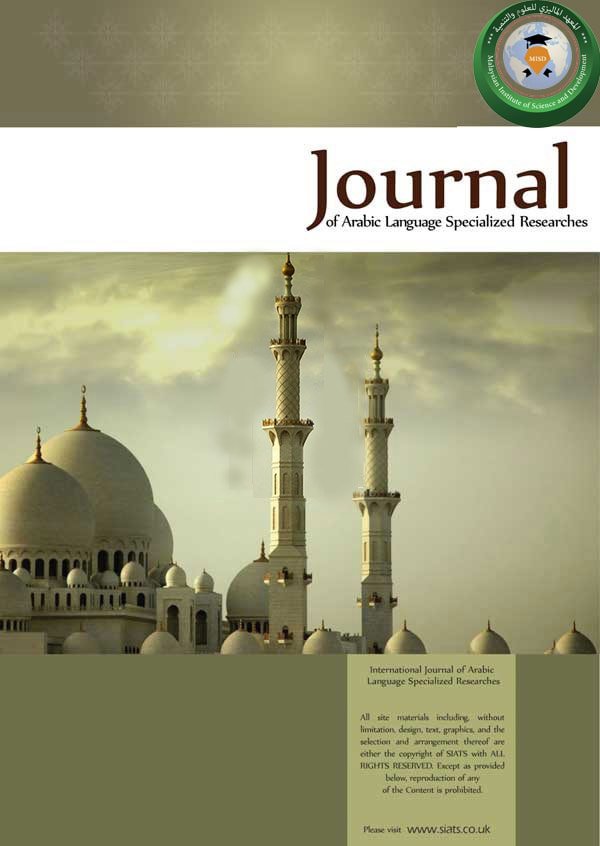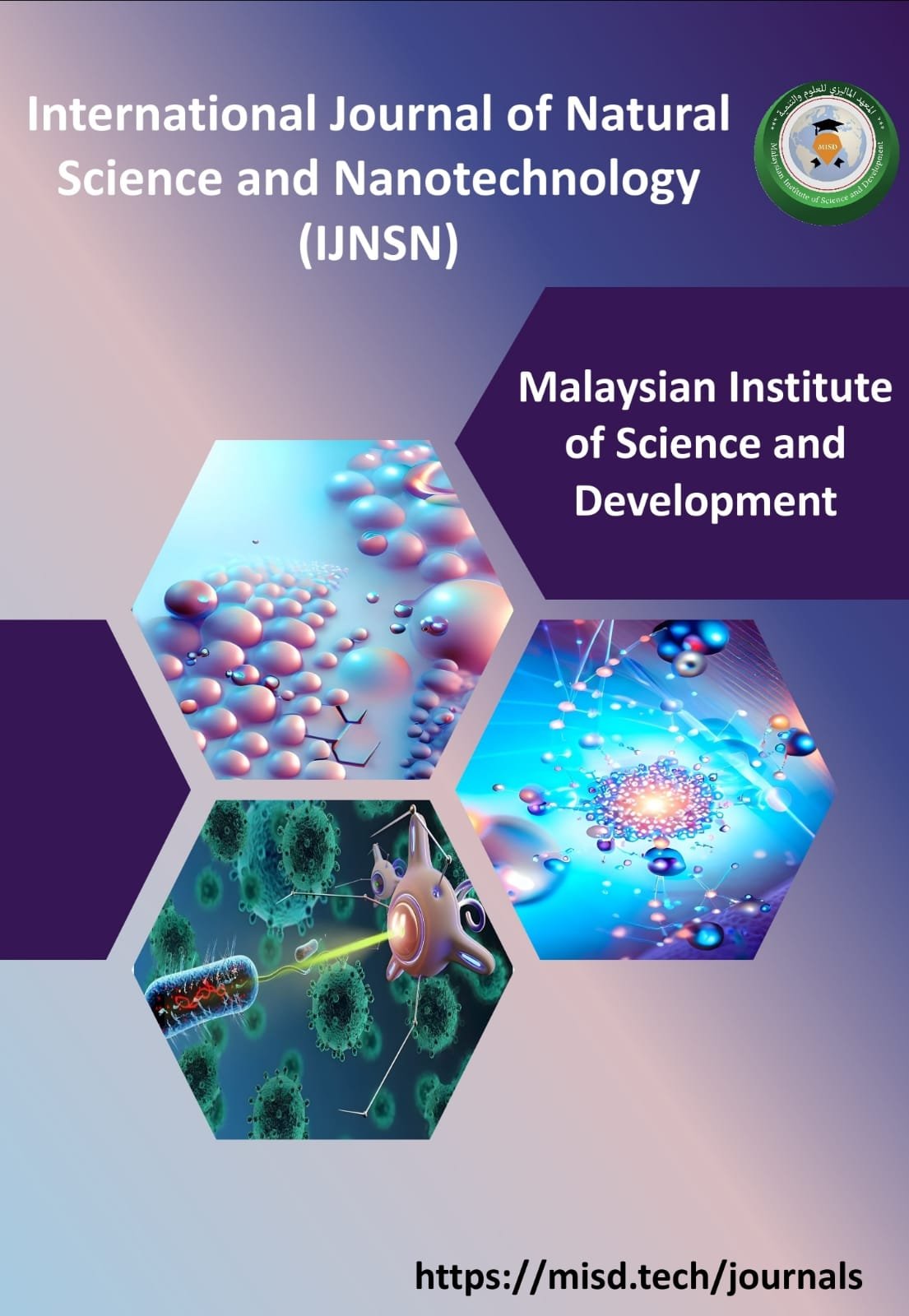
Journal of Manuscripts & Libraries for Specialized Research (JMLSR)
About the Journal :
The International Journal of Manuscripts & Libraries for Specialized Research, published quarterly on behalf of the Malaysian Institute of Science and Development is a referred scientific journal, which is supervised by a group of scholars who are specialized in heritage, museums, and library studies in the Arab and international universities.
The objectives of this journal are: – To spot light on our memorable history to inspire a brighter future; – To stimulate the minds of researchers and adorers of heritage; -To exert efforts for the purpose of mobilizing skills and capacities in gathering various cultural, thoughtful, and heritage backgrounds; -To interact with the important aspects of our bountiful heritage, by and with which we live and move forward to the achievement of innovation, invention & development; -To fight alienation of relations with heritage; – To interact with masterworks of heritage to dedicate them to researchers to serve as a platform for achieving development.
The journal seeks to promote technical and educational services in view of international standards through distinguished and specialized qualifications, use of modern technology, loyalty and devotion to work, and achieving excellence to provide researchers and students with the best services. This will create a professional encouraging environment for the excellent creative ideas and talents who are committed to team work values, spirit of respect, authenticity of vision, and excellence in objectives.
The journal concerns with public intellectuals, persons interested in heritage and manuscripts, text editors, graduate researchers, researchers of manuscripts, librarians and information centres, in support of being a pioneer journal that seeks to make heritage a deep rooted science, art, entertainment, and education within an attractive framework of knowledge, as a leading journal in the field of heritage, documentations, and manuscripts studies at the national and international levels. Furthermore, the journal publishes authentic and distinguished scientific, technical and applied researches in an attempt to become a significant and added value journal in the field of electronic media, which takes advantage of the valuable components of manuscripts to regain its original beauty and the identity of Arabs and Muslims since they represent national, historical, ideological identities. In addition to this, manuscripts are regarded as a source of pride of the heritage left by our parents and ancestors including sciences, cultures, knowledge, and arts.
FATAH AL-QADEER IN THE CONVERSATIONS OF AL-BASHIR
FTH ALQDYR FI ‘AHADYTH ALBASHIR JAME AL’USTADH ALEALLAMAT ALDRDYR
ملخص
|
|
تحقيق د. إندونيسيا خالد حسون
الأستاذ المشارك في قسم الشريعة والدراسات الإسلامية
جامعة الملك عبد العزيز
المملكة العربية السعودية / جدة
Sunnah is one of the most honorable studies, and it is the second source of Islamic law. It combines the interests of religious beliefs and the present life. Some major well-known scholars have excelled in the study of Sunnah and they were a pride of our nation. Among those is the manuscript of "Fatah al-Qadeer in the hadeeth of al-Bashir" by Shaykh Ahmad Aldardayr (may Allaah have mercy on him)
This work was divided into three chapters:
Chapter 1: The author's biography, including: his name, his origin, his religious beliefs, his scholarly status, the tribute of scholars in the field, his teachers, and his students, his works, and his death.
Chapter 2: It is regarding the manuscript "Fatah al-Qadeer in the hadeeth of al-Bashir". This chapter includes a description of the manuscript’s name, documenting its relation to Aldardayr, its methodology, and resources.
Chapter 3: Text investigated.
It was investigated on the Azhar library’s copy. The writing was clear, written in Naskh script, and the number of plates in it was: (14) plates and (28) pages and (21) lines per page. The one who transcribed was Hussein Zureiq bin Ismail bin Othman Ahmed bin Ahmed Zureik, this version of transcript was compared to the author’s copy. This version of writing was completed the night of the twenty-sixth of Dhu al-Hijjah at end of the year 1199 AH.
|
|







 العربية
العربية